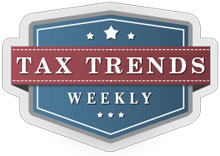Swiss Banks to U.S. Tax Evaders: Your Money & Secrets Are No Longer Safe with Us
The oldest bank in Switzerland, Wegelin & Co, has remained steadfast throughout history. First surviving Napoleon’s invasion followed by World War I and II. Seemingly, this ancient banking system has withstood the test of time and might and muster of the world’s most dominant and formidable armies. However, it’s steadfastness has been halted in the wake of inquiries by the United States government, in attempts to collect untold sums of unpaid income tax from wealthy U.S. citizens who have commonly looked to this bank to hide foreign assets for hundreds of years.
In February of this year, the U.S. Department of Justice brought forth criminal charges against Wegelin & Co, handing down indictments for their assistance in aiding wealthy American citizens with covering up more than $1.2 billion in estimated taxable income. Wegelin & Co represents a monumental landmark, being the first international bank to ever face criminal charges from the U.S. government. News of the indictment all but destroyed this credulous banking system, which was shortly bought out by Raiffeisen Group in the aftermath. Following the Wegelin & Co turmoil, the U.S. government did not letup, bringing further charges against 11 more banking institutions in attempts to collect on unpaid and unreported income taxes from its wealthiest citizens.
March 4th of this year marked a turn in history, with the U.S. government signing an amended tax treaty with the Swiss government that now allows the U.S. to gather records and pursue and identify tax dodgers who often follow classic, unscrupulous patterns that often involve dummy corporations, trusts and even foundations that are all designed to shelter and hide income.
“This is a strike at the heart of the Swiss banking sector and a major breakthrough for the U.S.,” said Teodoro Cocca, professor at the Swiss Finance Institute, in a recent interview with Time Magazine. According to Cocca, adding that the amended treaty terms will “also demand the same exchange of information rights.”
The sweeping tax evasion inquisition began in 2008, when the U.S. government discovered that UBS bank had knowingly assisted countless American citizens in evading taxation on billions of dollars of undeclared assets. In a monumental move, USB agreed to pay a hefty $780 million fine to evade being charged with criminal intent.
Switzerland hosts the world’s largest banking centers offshore, holding more than $2.1 trillion in assets from contributors worldwide. The Swiss disagree with the onus that they have garnered as being an epicenter for laundered funds or ill-gotten and undeclared gains, an issue they made eminent when they passed a money laundering law in 1998. The new law ensures that all depositors are identified, numbered and tracked, and that any suspected incidents of foul place are reported appropriately to the authorities.
Where the wealthy once saw a tax haven, new laws are being enforced that no longer make this nation as lucrative for foreign money management as it once was.
According to Martin Naville, head of the Swiss-American Chamber of Commerce, it’s still a viable and attractive place to store your money. “Switzerland offers other advantages — a stable democracy with transparent arbitration and justice procedures — which may not be the case of certain emerging competitors, especially in Asia,” he told Time Magazine.


One Comment
Comments are closed.